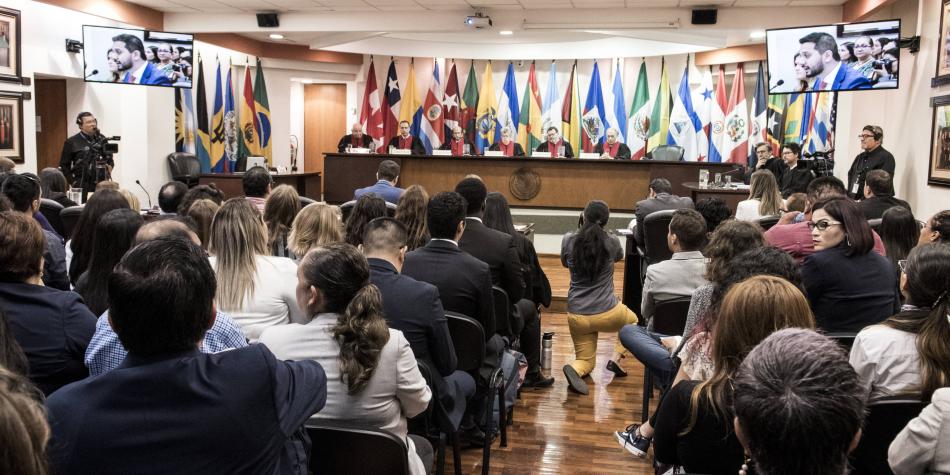Originally published in: eltiempo.com (Original language: Spanish)
In May there will be hearings in the case of the Cajar collective, which has denounced persecution for 30 years.
For the first time, the Inter-American Court of Human Rights (IACHR) will try a case involving illegal surveillance and intelligence on human rights defenders.
This is the case brought by the José Alvear Restrepo Lawyers’ Collective (Cajar), which has denounced being a victim of persecution practices for more than 30 years, in which its members have been the focus of illegal intelligence activities by different State agencies, stigmatizing speeches, threats, attacks, exiles, smear campaigns, psychological torture and harassment.
Although Cajar has been the representative of other victims before the Inter-American Human Rights System (IAHRS), this time, in a public hearing convened for next May, he will arrive as a petitioner, represented by the Center for Justice and International Law (Cejil), which highlighted the litigation as an opportunity to help transform the scenario of serious violations against human rights defenders throughout the continent.
“We hope that the hearing will allow us to establish the impact of the threats to the lives of human rights defenders and, consequently, the need to strengthen public policies that effectively respond and offer those who defend rights the possibility of carrying out their work without fear,” said Viviana Krsticevic, executive director of Cejil.
Before a case goes to the Inter-American Court of Human Rights, it must first go through the Inter-American Commission on Human Rights (IACHR), which in the case of the Cajar has already pronounced in a report in which it stated that “the State failed to comply with its duty to respect by taking part, through concrete actions of its authorities, in the risk faced by the Cajar, as well as by showing tolerance and acquiescence with respect to the facts against them”.
This final report, however, does not compromise the decision of the Court, which will hear the victims, the State, the IACHR itself and several witnesses in a public hearing scheduled for May 12 and 13, and then give its verdict.
Regarding what the victims expect, Cajar indicated that they are asking for the threats against members of Cajar and against the collective to be thoroughly investigated, for structural reforms to be made to state intelligence practices so that persecutions such as the one they have experienced are not repeated, and for comprehensive reparation measures such as acknowledgement of responsibility and public forgiveness by the State.

